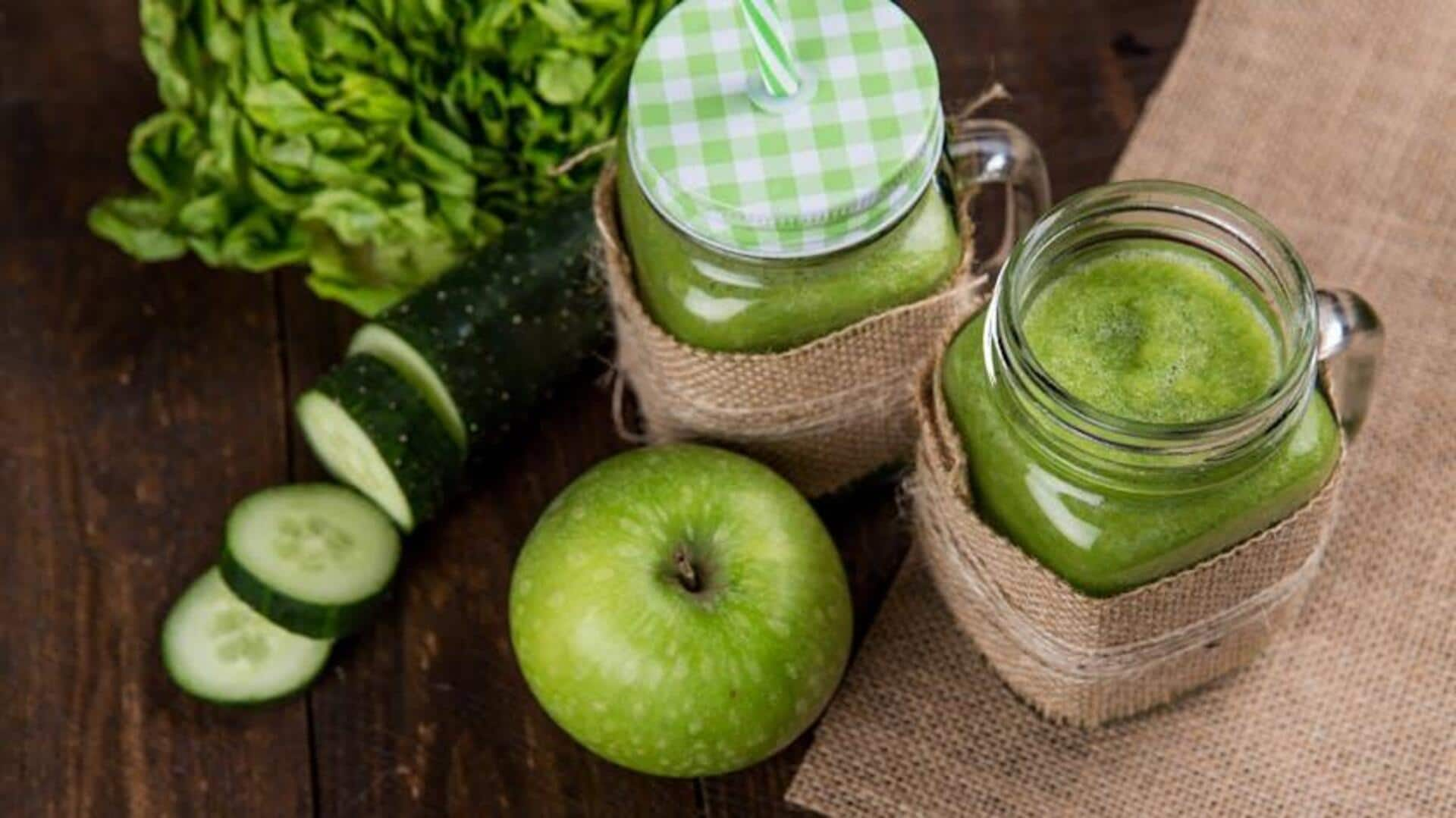
Are green juices really healthy?
What's the story
Green juices have become the go-to detox solution, promising to cleanse your body and boost health. However, many of the claims surrounding these vibrant drinks are not entirely true. In this article, we will debunk common myths about green juices and reveal the truths behind detoxification. With this knowledge, you can make informed decisions about including green juices in your wellness routine without falling for misleading promises.
Quick fix
Myth of instant detoxification
One common myth is that green juices detox you instantly. In reality, the body's liver and kidneys naturally detoxify themselves all the time. Though drinking green juice can promote general health by supplying nutrients, it doesn't immediately flush out the toxins. Knowing this can help manage realistic expectations from green juices when adding them to your diet.
Nutrient intake
Nutrient absorption misconceptions
Another misconception is that drinking green juice guarantees better nutrient absorption than whole vegetables and fruits. While juicing may concentrate certain vitamins and minerals, it often eliminates fiber vital for digestion and satiety. Eating whole produce offers a balanced intake of nutrients with fiber that helps with digestive health.
Weight management
Weight loss myths surrounding green juices
Many think that swapping meals for green juice helps lose a ton of weight. Although cutting back on calories might lead to short-term weight loss, relying on just juice misses out on important macronutrients- protein and healthy fats- needed to keep energy levels up and muscles maintained. A balanced diet comprised of various food groups helps keep weight in check better than juicing alone.
Economic consideration
Cost vs benefit analysis of green juices
The idea that paying for pricey store-bought green juices ensures better health benefits is another myth that needs busting. Homemade ones with fresh ingredients could be just as healthy for a fraction of the cost compared to pre-packaged ones costing $5 or more per bottle. Weighing cost against benefit would make for mindful spending without foregoing benefits of homemade alternatives.